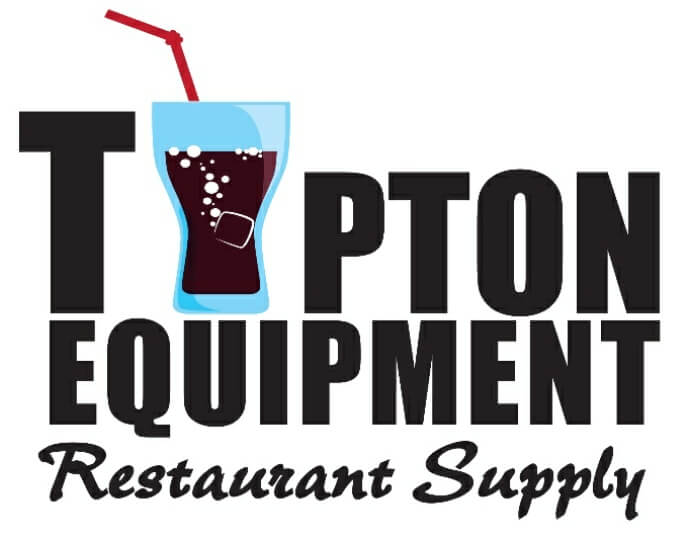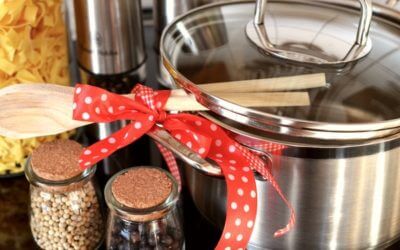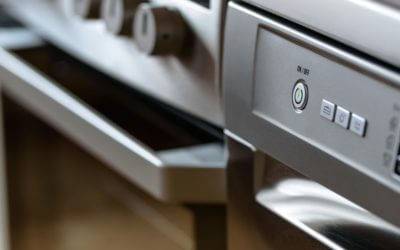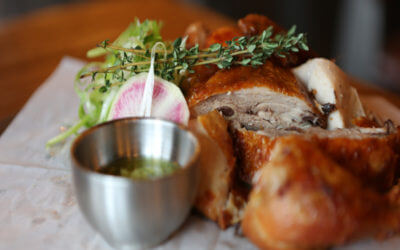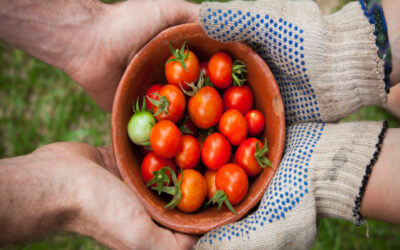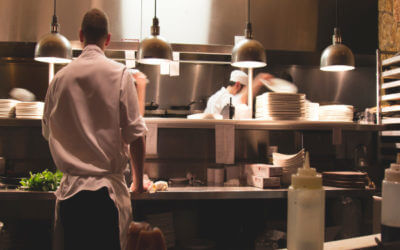Pulping and Grinding: A Starter’s Guide to Reducing Commercial Food Waste Costs
February 13, 2018For most restaurant owners and managers, the expenses involved in making meals are always under careful consideration.
Water is needed to prepare, cook and wash food; power is necessary for food prep, cooking and cooling, and so on. However, how many of us consider the costs involved in dealing with the food that we don’t use – the food that finally ends up as waste?If you dispose of your food waste in the trash, you will have to pay tipping fees on all that weight. In addition, you have the potential issues of trash odors and pests. When you add labor expenses on top of all that, throwing food waste in the trash isn’t cheap. Despair not. There are several types of kitchen equipment available to help reduce the size of this problem. The easiest way to decrease your food waste is to grind it and press as much water out of it as possible, using a type of mechanical kitchen equipment known as a pulping system.
Shrink your Food Waste with Pulping Systems
Pulping systems with dewatering presses decrease food volume by as much as eighty five percent. Although the leftover waste can be thrown away, a pulping system is a particularly good kitchen equipment choice if organic waste recycling is offered in your region. With pulping kitchen equipment, your disposal charges will decline substantially, seeing that your waste hauler will collect only fifteen percent of the amount of food waste you used to produce. And this can be reused as compost!
When it comes to buying your kitchen equipment, traditional pulping systems can range from $35,000 to $150,000 or more. However, multiple producers now create food grinding and dewatering systems on a smaller scale. Such systems contain a large disposer, coupled with an under-counter dewatering press, making them appropriate kitchen equipment even for mid-sized restaurants.
Upgrade your Food Wast Process with Slow Speed Grinders
For an even more efficient solution, slow speed grinders (SSGs) are a type of kitchen equipment that lessens waste more successfully and quietly than pulping systems. While pulping systems do reduce solid waste substantially using recycled water, you may lessen the noise in your commercial kitchen if you use a slow speed grinder. Another advantage is that SSGs are a less complicated kind of kitchen equipment to clean and maintain.
Slow speed grinders use existing, proven technology in grinding and applies it as follows:
Reduced Noise and Vibrations
SSG kitchen equipment significantly reduces noise and vibrations, because you’re using a grinding mechanism instead of a regular rotating plate. As opposed to the typical, loud disposer noises, slow speed grinders produce what could be described as a low hum.
Effective Water Extraction
the SSG makes use of a centrifuge process, with a spinning screw and screen in place of a conventional dewatering screw press. Working like a wringer washer to extract water, this feature of the slow speed grinder variety of kitchen equipment drastically improves the effectiveness of the water extraction process. The result is a dryer, lighter-weight end-product that is cheaper to dispose of.
Water Savings
Current pulper technologies pump in freshwater and then recycle it as a slurry. SSG kitchen equipment takes water saving a step further through the use of water from the dishwasher and conveyor. Used water within the dishwasher pre-rinse tank can be piped over to be used in your new piece of kitchen equipment, the slow speed grinder.
Integration with Dehydrator
As soon as your slow speed grinder has decreased your waste, it can be conveyed over to the dehydrator, where the food waste can be brought down between a ninety and ninety five percent dry state.
What’s in a Cooking Pot, How to Choose the Right One?
As a restaurant owner, your cooking needs might vary. Did you know that a good quality pot can greatly improve your cooking experience, while also improving the quality of your cooking? This cooking equipment is a very important one that cannot be done away with...
5 Things Every Restaurant Owner Should Do Before Buying Used Kitchen Equipment
Equipping your restaurant properly can cost a lot of money, so buying used kitchen equipment is the go-to choice for many restaurateurs. Buying used kitchen equipment for a restaurant is a bit different than buying used equipment for your home, however. You will...
Top Restaurant Technology Trends in 2018
When looking to buy restaurant supplies, you want to be on the leading edge of technology trends. This will keep your kitchen running smoothly. Let’s take a look at some of the most recent trends in restaurant supplies technology. 1. New Payment Options Who would...
5 Different Ice Shapes and Why You Should Care About Them
Ice makers are very popular in the restaurant and foodservice community because they eliminate the need to buy ice every day. And of course, adding an ice maker to your collection of foodservice equipment means you will always have ice on hand when you need it. An...
Choosing the Right Milk Cooler: Cold Wall or Forced Air?
In a restaurant, milk is an essential to have on hand for coffee and other café-style beverages, for serving with kids’ meals, and as a key ingredient in many recipes. Keeping your milk properly chilled can be difficult without the proper restaurant equipment....
How to Choose Your Next Commercial Meat Smoker
The movies that connect with us on a personal level are the ones that linger in our memories forever. Anyone who has used a commercial meat smoker knows that they have a huge influence on the taste of a meal. You need to have just the right kitchen equipment to get a...
Are High Speed Ovens Too Good to be True?
You might have heard a few of the bold claims that foodservice equipment manufacturers have been making about high speed ovens, but they can’t be possible, right? Cooking three times as faster as regular ovens? Five times as fast? Fifteen times as fast? It may seem...
Choosing the Right Food Storage Containers for Your Restaurant
Choosing the right kitchen supplies will make a difference in your restaurant. Whether it is heavy duty kitchen equipment or food storage containers, each piece of equipment plays its own important role. Today, we are going to talk about how to choose the right food...
Tipton’s Guide to Perfect Poultry Trussing
Do you ever truss birds in your commercial kitchen? Trussing is a fantastic cooking technique because it makes poultry cook faster, look more attractive and taste better. If your commercial kitchen prepares poultry, you don’t want to miss these trussing tips. Trussing...
How to Eliminate Excess Condensation in Your Kitchen
Is your commercial kitchen getting steamy? If so, you could have more than just an uncomfortable working environment on your hands. Excess moisture in your commercial kitchen can result in the corrosion of equipment, the development of mold, and even damage to your...
The DIY Guide to Your Restaurant’s Own Garden
Stocking your restaurant supply with your own home-grown herbs and produce can truly bring your dishes to life. When it comes to food, everyone knows there’s nothing like homemade and home-grown. Having your own culinary garden, however large or small, can help you...
5 Reasons a Meat Grinder Will Set Your Burgers Apart
The more you do to prepare your foods in-house with the right kitchen equipment, the fresher and more flavorful your dishes become. There are all sorts of restaurants offering fast-food style burgers, but some diners are looking for the real deal. A fresh, juicy...
Pest Preventions to Implement in Your Commercial Kitchen
Restaurant pests: it’s something that few people want to think about. Like it or not, pest management is an essential consideration for every commercial kitchen. Offering food, shelter and water, the unprepared commercial kitchen naturally provides everything pests...
Choosing the Right Material for Your Cooking Equipment
Kitchens are very unique to their chef. Just like a car mechanic has a toolbox unique to them, so is the cooking equipment in a kitchen. And over time, the same cooking equipment become a natural extension of the chef. What tools are you using in your kitchen? It...
Kitchen Hacks for Your Home
Some people are naturally good at certain skills. We all know someone who is naturally book smart, athletic, or musically inclined. What makes you jealous of them is how easy they make tasks seem compared to you. One skill might be cooking. Your dream may not be...
